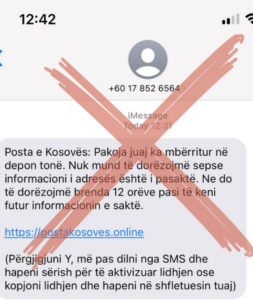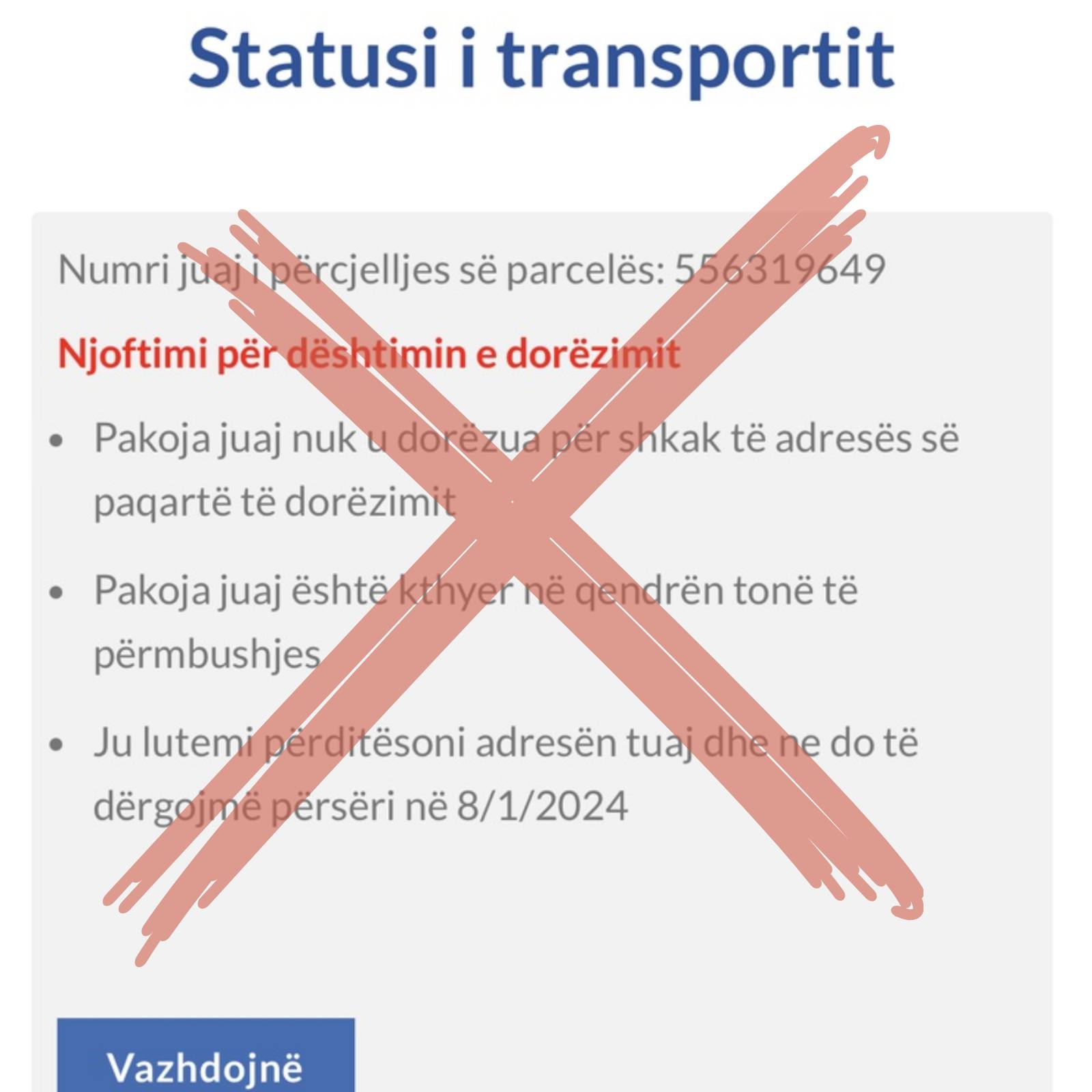Recently, mobile phone users in Kosovo have received fraudulent messages pretending to be from the Post of Kosovo, with the intent of phishing for bank account information.
The message content stated, "Post of Kosovo: Your package has arrived at our depot. We cannot deliver it because the address information is incorrect. We will deliver within 12 hours after you provide the correct information." The message included a link appearing as "postakosoves.online." While Kosovo's country code is +383, the message was sent from a number with the +60 prefix, which belongs to Malaysia.
In response to growing concerns, the Post of Kosovo has informed citizens that these messages are a scam.

Photo: Post of Kosovo
“INCREASED CAUTION!!! The Post of Kosovo warns the public not to fall victim to a scam. Unknown parties are sending SMS messages to citizens, falsely presenting themselves as the Post of Kosovo. As soon as the Post of Kosovo became aware of this, they informed the relevant authorities and are cooperating with them," the Post of Kosovo stated in their response.
Furthermore, citizens of Kosovo are advised to not click on any links sent through these messages and to avoid engaging with numbers that do not belong to the Post of Kosovo.
"Under no circumstances will the Post of Kosovo ask you for personal information or bank card numbers. Other postal services in the region have also been targeted by similar malicious actors," the statement reads.
There have been similar cases in the past where citizens were asked for their information in this manner or through donation requests. The intent has been to deceive citizens and steal their personal and banking information through fraudulent content.
A few weeks ago, a fake website circulated online, requesting donations in the name of the Kosovo Security Force (KSF). However, that was not created by the Ministry of Defense of Kosovo. The Embassy of Kosovo in the U.S. labeled it as a fraudulent platform that has been circulating for years, urging the diaspora not to fall victim to the scam.
*This article is published as part of the Western Balkans Regional Initiative against disinformation. “Western Balkans Anti-Disinformation Hub: exposing malign influences through watchdog journalism.”



























































